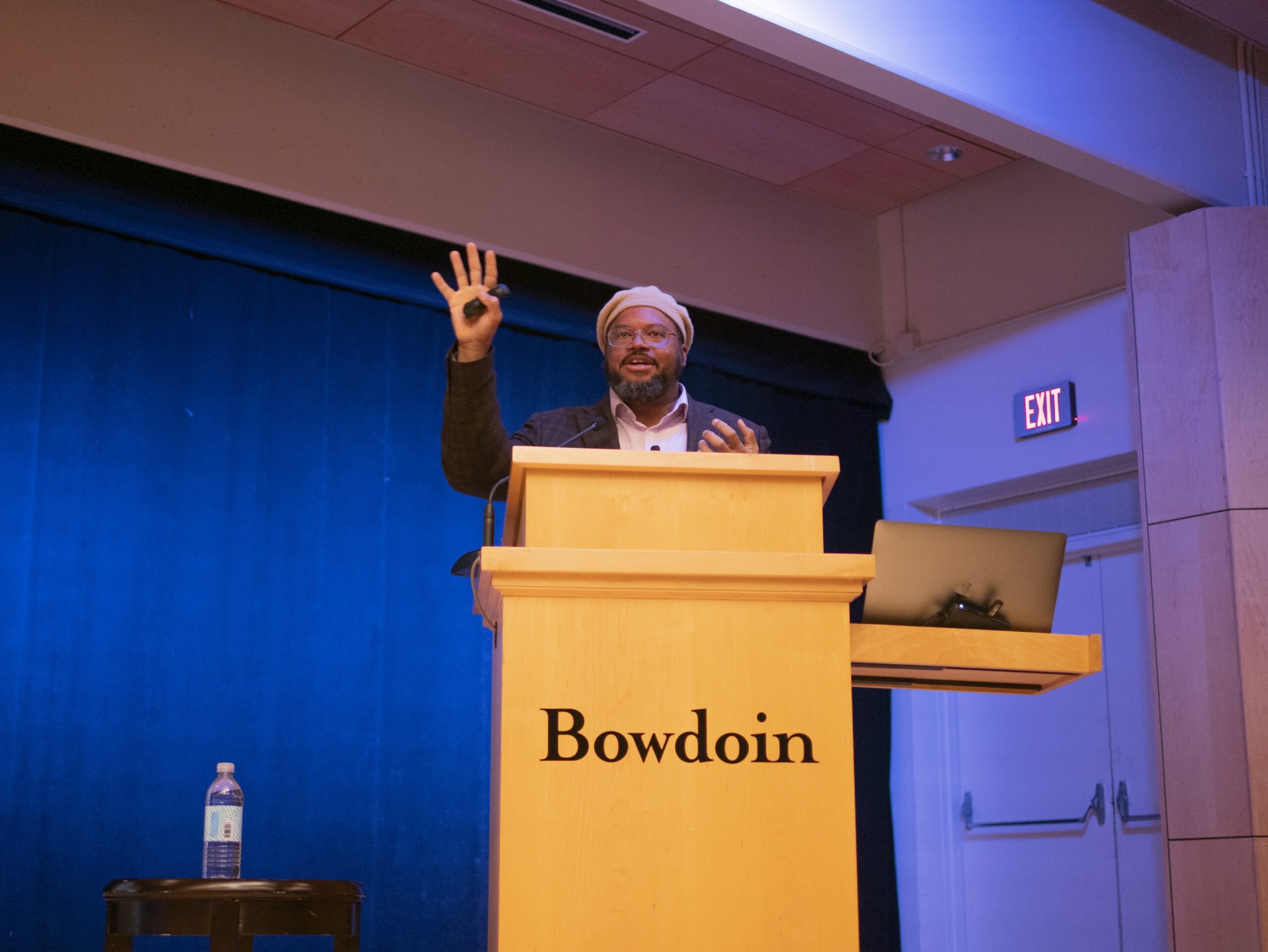Imam Dr. Khalil Abdur-Rashid delivers lecture on Islam and Islamophobia in the United States
November 14, 2025
 Andrew Shi
Andrew ShiBowdoin students and community members joined Imam Dr. Khalil Abdur-Rashid on Thursday night in Kresge Auditorium for a talk titled “Understanding Islam, Muslims in America and Islamophobia.” Abdur-Rashid, a chaplain at Harvard University, instructor at the Divinity School and lecturer at the Kennedy School of Government, spoke in the fifth episode of the Viewpoint Exchange speaker series.
After an introduction by Senior Vice President for Inclusion and Diversity Benje Douglas, Abdur-Rashid began his talk with a brief overview of Islam, including an explanation of its seven pillars and the history of the religion.
While describing the history of Islam in the United States, Abdur-Rashid highlighted the ties between Islam and the African-American community, pointing to high-profile African-American Muslims such as Malcolm X and Mohammed Ali. He described how the deep connection between these two communities was forged through culture.
“Islam starts to take root in the African American community early on through jazz. The birth of jazz in America is coterminous with Islam coming into the Black community,” Abdur-Rashid said. “The jazz clubs become these places where not only different ideas about society are formulated and different ideas about music are explored but also different ideas about belief and theology and alternative forms of religious practice. Jazz musicians also adopt Islam as a different form of spiritual and religious practice.”
Abdur-Rashid went on to provide differing definitions of Islamophobia, explaining how the Council on American-Islamic Relations’ definition diverges from the United Nations’ definition.
“The Council of American-Islamic Relations defines Islamophobia as a fear, hatred or prejudice towards Islam or Muslims perpetuated by people and institutions. The big difference here is that the United Nations definition includes non-Muslims as possibly being affected by Islamophobia. The Council of [American]-Islamic Relations does not include that aspect of the definition,” said Abdur-Rashid.
Next, Abdur-Rashid acknowledged the debate over the usage of the term Islamophobia itself.
“You’ll see that in some circles, there’s a debate, ‘Should we use the term Islamophobia, or is really anti-Muslim bias or anti-Muslim hatred the better term?’” Abdur-Rashid said. “That comes up because there’s a fear that the term Islamophobia [condemns] all the critiques of Islam, and therefore it stifles freedom of expression.”
Abdur-Rashid claimed that Islamophobia is a relatively new concept that only came into existence after the September 11 attacks.
“When you think about antisemitism, for example, [it] has a really nefarious history, and it goes back a long way. Islamophobia was birthed at 9/11. You didn’t have Islamophobia in America, you have Orientalism, but Islamophobia is a new virus,” Abdur-Rashid said. “When you study antisemitism, you go back a very long time to look at antisemitic tropes. For Islamophobia in the United States, you can’t do that. You can’t pinpoint it past 9/11. It’s a brand-new phenomenon, and it emerges because our community, our country, experienced a transformation.”
Abdur-Rashid finished his talk by stressing the importance of collaboration between communities in combating discrimination.
“Islamophobia and antisemitism are different sides of the same coin in the sense that they are both forms of bigotry, hatred and can manifest themselves in violence. They are different in terms of the history; they’re different in terms of how they manifest in some cases, and then there are commonalities or areas where they rhyme,” Abdur-Rashid said. “Communities have to be in conversation with each other. We have to stand when there’s something that is wrong on one side, we have to be able to call it out and when there’s something wrong on the other side, we have to be able to call it out.”
Ali Abbas ’29, who attended the event, spoke on the importance of showing up for such events as part of the Muslim community himself.
“I think [the importance of attending] this event, specifically, was to show up as a matter of support to the cause and to [Abdur-Rashid] himself, too,” Abbas said. “Because if you don’t show up for your own causes or the things that you stand by, you can’t expect others to show up.”

Comments
Before submitting a comment, please review our comment policy. Some key points from the policy: